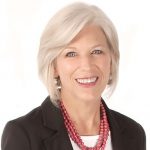Editor’s Message
*This is an article from the Spring 2021 issue of Contentment Magazine.
It has now been more than a year since our world was turned upside down and the word ‘unprecedented’ started its meteoric rise to popularity. For many, this prolonged uncertainty has made contentment feel even more beyond reach. Fatigued by continually processing the news, the resulting global and personal challenges, and the multitude of emotions they evoke, we need even more focus, intention, support, and tools to find healthy perspectives and practices for seeking contentment. We need HOPE — a feeling of trust that things can get better. This issue delivers inspiration, hard science, and gritty guidance to find your best mindset for not only getting through this pandemic, but emerging stronger and happier.
Jeff Jernigan, PhD, BCPPC, FAIS offers us the perfect starting point: just what is this contentment we seek? In a long overdue article for the magazine bearing this title, Jeff reflects on the beliefs we inherit or acquire about contentment. He then examines the actual biology and psychology of contentment and the role of emotions. With a powerful metaphor of sailing, Dr. Jernigan offers concrete steps to make choices to create the state of contentment.
A new contributor, Michelle Anne, PCC, DAIS, combines her training in neuroscience and leadership with her background in eastern contemplative studies in an article nicely outlining steps to learn to slow down, recognize the thought changes and fears instilled by the chronic stress of the pandemic, calm down, and shift your attention to your intention. She discusses the physiology of invoking the relaxation response, to replace the flight or fight reaction.
Rozina Lakhani, MD, MPH, FAIS, brings her wisdom and expertise to the idea of bouncing back from stress to find joy. Just how do we find resilience during all this change? She shares her Calm, Process, Respond (CPR) formula for moving through the stress with great insights on processing, identifying your personal circle of power and using it to craft better responses.
Charles Grantham, PhD, MSH, FAIS, APF delivers the second half of his 2-part series on Personal Leader Transformation. With so many external pressures in the world, many are finding this a good time to reflect, regroup, and reinvent. His first article (Winter 2020/2021 issue) looked at why, a year into this pandemic world, it’s time for intentional transformation and growth. In this issue Dr. Grantham digs into the how — the steps of true transformation and the 10 critical skills needed to make the paradigm shift to craft your journey. This is your guide to a positive metamorphosis.
Kjell Tore Hovik, PsyD, PhD inspires each of us to really go for it — pursue your dreams despite all the swirling chaos and negative forces. He discusses the 4 C’s required for resilience and self-actualization: 1. Curiosity, 2. Compassion, 3. Conceptualization and 4. Conviction. Then, Dr. Hovik shows you how to practically apply these to move from wanting something to really changing your behavior to get it, humbly using his own desired behavior change as an example.
Jen Butler, MEd, BCC, DAIS addresses a topic I’ve come across so often in my years of coaching leaders — the mistakes most women (and some men) don’t even know they are making that increase their stress and hold them back in the long run. These are issues that are reinforced by the subtle expectations of our culture, so they manifest insidiously. Jen calls them out and provides strategies to methodically tackle them. This is an article to share to help us all change the trajectory and reduce the burnout.
The next article is a look at some hard-core science underlying how chronic stress is associated with 70-90% of doctors’ visits, from skin changes to diabetes to heart disease and more. What is the common thread that unites the disease processes? Carlos Monteiro has been researching this for years, inspired by a theory his father-in-law developed in 1972. In fact, the foundations for this were laid by the research of the originator of the stress concept and founder of The American Institute of Stress, Professor Hans Selye. As a physician myself, I have always been amazed by how slowly acceptance of some new science progresses, while at the same time some of it seems to go at warp speed. Quite often theories get discarded or lost. How exciting it would be to find new ways to understand the mechanisms of stress and its toxicity, so we have more possibilities to intervene. The language of this article may be a little harder to read for some, but well worth it to find hope of figuring out how we can stop the ravages of chronic disease. (Hint for reading: ischemia is lack of blood flow, and a precursor to a heart attack or myocardial infarction.)
May the wisdom and science generously shared by these experts inspire and direct you to cut through the chaos and uncertainty we have all been experiencing to find hope and clarity about how to move forward toward a healthier, happier, more content 2021!
Cynthia Ackrill, MD, PCC, FAIS
Editor
Contentment Magazine
The dictionary defines “content” as being in a state of peaceful happiness. The AIS magazine is called Contentment because we want all of our guests and members to find contentment in their lives by learning about stress management and finding what works best for each them. Stress is unavoidable, and comes in many shapes and sizes that makes being in a state of peaceful happiness seem like a very lofty goal. But happiness is easy to find once you are able to find ways to manage your stress and keep a healthy perspective when going though difficult times in life. You will always have stress, but stress does not always have you!
